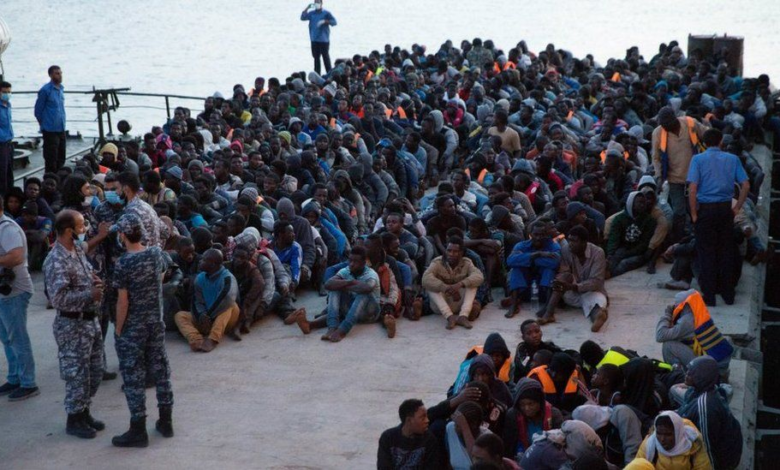MSF Petitions Safe Countries To Evacuate Migrants Trapped In Libya
The international NGO said it was confronted with protecting migrants from harm, both inside and outside detention centres, torture and violence, sexual violence, and the difficulty of ensuring continuity of medical care for people with physical and mental conditions.

Medecins Sans Frontieres/Doctors Without Borders, an international NGO, has urged safe countries to offer protection to migrants in Libya.
It also urged them to urgently evacuate the vulnerable people by strengthening existing mechanisms and opening alternative pathways for them to leave the country.
According to a statement released by the charity organisation, the few legal pathways to safe countries set up by the UN’s Refugee Agency (UNHCR) and the International Organisation for Migration (IOM) are slow and restrictive.
“People of only nine nationalities can be considered for registration, access to registration is almost non-existent outside Tripoli and in detention centres, and the number of relocation slots in destination countries is minimal,” Claudia Lodesani, MSF Operations Manager for Libya, said in the statement.
Lodesani said since 2016, MSF has been majorly confronted with protecting migrants from harm, both inside and outside detention centres, torture and violence, sexual violence, and the difficulty of ensuring continuity of medical care for people with physical and mental conditions.
“They have minimal possibilities of obtaining physical and legal protection. As a result, the Mediterranean Sea is often their only way out,” she said.
“We believe that safe countries, especially in the EU – which has been funding the Libyan coastguard for years and encouraging the forced return of migrants to Libya – must facilitate the evacuation of these victims of violence and protect them on their soil.”
A report titled “Out of Libya” by MSF describes the weakness of existing protection mechanisms for people stuck in Libya.
According to the report, of the approximately 40,000 people registered with the UNHCR’s resettlement programme, just 1,662 left Libya last year, while some 3,000 people went through the IOM’s voluntary return programme. In total, around 600,000 migrants live in Libya.
The report also highlighted alternative solutions, such as those initiated by aid organisations in association with governments.
The charity organisation cited that in Italy, a humanitarian corridor has already been opened and is allowing the evacuation of some highly vulnerable people in need of protection, including patients treated by MSF in Libya.
Meanwhile, discussions are underway in France with the authorities to evacuate survivors of torture and violence and people with severe medical conditions, who would be taken care of by MSF on arrival in France.
MSF advised other safe countries should replicate this type of mechanism.
“The medical care of people who are arbitrarily and indefinitely detained, or at risk of systematic violence, poses many dilemmas,” Jérôme Tubiana, MSF advocacy manager for Libya, said.
“Realistically, what we can do to help them in Libya is limited. To truly protect the most vulnerable people, we must first and foremost and urgently get them out of the detention system and out of the country.”
In Sept. 2021, IOM identified more than 610,100 migrants in Libya. Nine in 10 migrants left their country of origin primarily for economic reasons. The majority of migrants, 67 per cent, were from neighbouring countries, especially Niger, Egypt, Sudan and Chad.
Support Our Journalism
There are millions of ordinary people affected by conflict in Africa whose stories are missing in the mainstream media. HumAngle is determined to tell those challenging and under-reported stories, hoping that the people impacted by these conflicts will find the safety and security they deserve.
To ensure that we continue to provide public service coverage, we have a small favour to ask you. We want you to be part of our journalistic endeavour by contributing a token to us.
Your donation will further promote a robust, free, and independent media.
Donate HereStay Closer To The Stories That Matter




